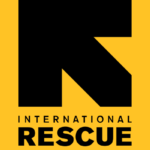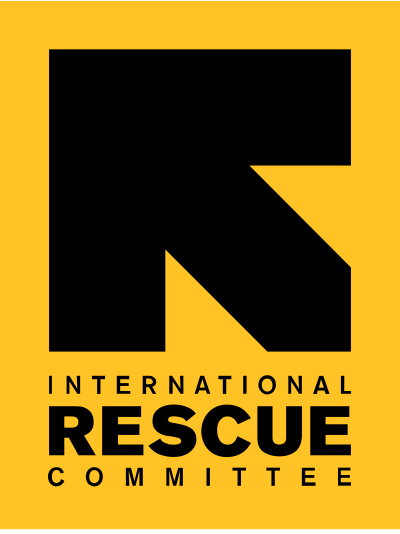
International Rescue Committee
The International Rescue Committee (IRC) responds to the world’s worst humanitarian crises, helping to restore health, safety, education, economic wellbeing, and power to people devastated by conflict and disaster. Founded in 1933 at the call of Albert Einstein, the IRC is one of the world’s largest international humanitarian non-governmental organizations (INGO), at work in more than 40 countries and more than 25 U.S. cities helping people to survive, reclaim control of their future and strengthen their communities. A force for humanity, IRC employees delivers lasting impact by restoring safety, dignity and hope to millions. If you’re a solutions-driven, passionate change-maker, come join us in positively impacting the lives of millions of people world-wide for a better future.
The IRC began planning to reopen an oPt country program in mid-2022 and launched an emergency response in Gaza in October 2023. The organization is currently supporting a network of local partners in both Gaza and the West Bank to sustain critical health, protection, food security, cash, education, and early childhood development interventions. The IRC is also deploying emergency medical teams to provide surge clinical capacity in hospitals and other health facilities.
The IRC is working to scale its emergency response while building a longer-term oPt country program in parallel. This effort is being jointly managed by the Emergencies and Humanitarian Action Unit (EHAU) and the Middle East and North Africa (MENA) region, with a view to eventually transitioning the country program fully under the MENA region.
Job Overview:
Supply Chain Coordinator is a key position to the success and delivery of quality programs and shall act as the support function as necessary to implement programs effectively, inclusive of procurement, logistics, inventory management, property and asset management as well as vehicle and fleet management. The Supply Chain Coordinator is accountable for the design, planning, execution and monitoring of supply chain activities delivery of an effective supply chain function within the oPt program in compliance with IRC, and donor regulations and in line with program objectives. They are also responsible for continuously improving performance quality throughout the SC team and ensuring partners’ satisfaction by exercising service-oriented practices.
Major responsibilities
Supply Chain Planning
The Supply Chain Coordinator is responsible for supply chain activities planning, developing supply chain plans to support program implementation and close coordination with internal and external partners. Supply chain planning includes procurement plans, transport plans and training plans.
• Ensure procurement plans are developed for all active grants in collaboration with program Coordinators/Managers.
• Ensure supply chain staff training and capacity building plans are developed as the PMEs and incorporated into the budgets.
• Ensure that the supply chain department is well-staffed and that the roles and responsibilities of each have clear job descriptions.
• Support DDO, programs in setting up as per programmatic needs.
Procurement Management
The Supply Chain Coordinator owns, manages and drives IRC in-country procurement strategies, policies, and procedures. They ensure all country program procurement needs are met on time in accordance with IRC Global Supply Chain (GSC) standards.
• Ensure compliance with IRC and Donor policies in procuring program supplies and assets.
• Ensure review and execution of procurement contracts in a timely fashion.
• Ensure the implementation of GSC SOPs in all oPt program offices and the rollout of updated SOPs.
• Ensure supply chain monthly and quarterly reports are accurate and submitted on time.
• Organize procurement training sessions for procurement/tender committees in the field offices and non-supply chain staff if deemed necessary.
• Review procurement documents before payments.
• Ensure all suppliers/service providers’ information, history, and performance are filed and kept confidential in all offices.
• Ensure supply chain officers conduct Market Surveys and analyses quarterly and share with the program team and field
Coordinators/ Managers.
• Identify fraud and corruption red flags and address them in a timely manner.
• Establish a reasonable and appropriate lead time for all procurement of program supplies and delivery of goods to the program sites.
• Work with Field Offices Supply Chain staff and Field Coordinator / Managers to ensure effectiveness, countrywide uniformity of supply chain structure, and implementation of the IRC’s standard operating policies and procedures.
• Work with finance and the DDO to roll out an ERP system that best suits the oPt operations.
Inventory Management
The Supply Chain Coordinator is responsible for managing and controlling all inventory and warehouse operations in the country program and ensuring excellent records keeping, implementation of inventory standard operating procedures and control as provided by GSC.
• Ensure implementation of IRC inventory policies in all IRC oPt offices.
• Produce grants ending and year-ending inventory reports in a timely manner.
• Visit field offices at least once per year and check warehouses/stores records and safety as per IRC standard Supply Chain Assessment Tool (SCAT).
• Conduct spot checks and surprise inventory counts as per IRC SOPs.
Assets Management
The Supply Chain Coordinator is responsible for the procurement, maintenance, safe keeping and records of all IRC country program assets and equipment. They are responsible for all aspects of the administrative, financial, capital, and asset management operations in accordance with IRC and donor rules and regulations.
• Ensure Implementation of IRC Asset policies in all IRC oPt offices.
• Ensure assets are maintained timely and are safe to use, all maintenance is documented.
• Ensure assets are tracked properly, tagged at the delivery, and asset tracking sheet is continuously updated as assets are issued to staff or deployed to facilities.
• Plan for asset replacement as their service life comes to an end, ensuring sufficient funds are budgeted for replacement.
• Manage disposal process for assets, including ensuring donor approvals are in place before the disposal.
• Ensure spot-checks are done systematically, documented, and reported for all IRC assets, inventory, and equipment at least once a year.
Vehicles Management
The Supply Chain Coordinator is responsible for overseeing and coordinating all IRC country fleet and transportation activities, ensuring that all IRC fleet operations are conducted in adherence to IRC vehicle policies and procedures, including vehicle procurement, vehicle movement, maintenance, and reporting accuracy.
• Ensure all IRC vehicles are in good condition and well maintained.
• Ensure all IRC-owned vehicles are reported and insured by IRC.
• Ensure that the local fleet management policy is in place, implemented, and followed by all IRC oPt offices.
• regularly review fuel consumption and vehicle utilization management. Based on the analysis, plan for an increase/decrease of the number of vehicles if necessary.
• Review vehicle monthly reports and support the supply chain staff.
Compliance and Ethics
The Supply Chain Coordinator is responsible for identifying and analyzing compliance risk in supply chain processes, implementing strong procurement controls, identifying procurement red flags, implementing internal and external audit corrective action plans, and ensuring all supply chain activities are conducted in an ethical manners.
Learning and Development:
The Supply Chain Coordinator is responsible and accountable for overseeing all supply chain learning and development initiatives in the country and assessing training needs, developing training plans for supply chain staff and other target audiences (programs, finance, etc.) as necessary.
Requirements:
• Advanced Degree, minimum 5 years of progressive Supply Chain professional experience or equivalent education and experience.
• Demonstrated success as a Supply Chain leader across all disciplines, including planning, procurement, and logistics.
• Broad knowledge and experience in Supply Chain strategies, market analysis techniques, procurement and contracting, vehicle and fleet management, inventory, property, and asset management.
• Strong collaborator and influencer with effective interpersonal and analytical skills who can work seamlessly across countries, cultures, and organizational units.
• Able to work effectively in a highly matrixed structure.
• Strong financial management and budgeting skills.
• Excellent training and coaching ability.
• Fluency in English required, spoken proficiency in Arabic a plus
• Ability to travel to remote field offices.
• Resilient, organized, hard-working, with a positive attitude.
Demonstrated Skills and Competencies:
• A commitment to IRC’s mission, vision, values, and IRC Way – Professional Code of Conduct.
• Credible written, presentation, and verbal communication skills; ability to convey information effectively and solid experience providing training and staff development
• Validated sense of professional discretion, integrity, and ability to handle complex situations diplomatically and to effective resolution.
• Excellent management and interpersonal skills and a solid ability to promote harmonious/cohesive teamwork, in a cross-cultural context.
• Validated ability to plan long-term, organize priorities, and work under administrative and programmatic pressures with detail orientation and professional patience.
• Highly collaborative and resourceful; ability to establish positive working relationships with senior-level management and all other partners to maximize cooperation and productivity.
• Curiosity, a desire to continually learn and develop, and a sense of humor are a must.
• Analytical ability to create effective solutions to complex matters while adhering to labor laws and internal policies.
Language/Travel:
• English is required, and Arabic is highly desirable.
• Travel: 25% and workshops meetings and field office visits.
Key Working Relationships:
Position Reports to: Deputy Director for Operations – Regional Supply Chain Director.
Position directly supervises: Supply chain Staff
Other Internal and/or external contacts:
Internal: Regular relationships with regional and country Supply Chain staff at all levels, Deputy Director of Operations, and Program department leads.
External: May Serve as IRC Supply Chain representative in outside meetings, other non-governmental organizations, inter-agency groups and foundations, and Logistics cluster.
**Standard of Professional Conduct:**The IRC and the IRC workers must adhere to the values and principles outlined in the IRC Way – our Code of Conduct. These are Integrity, Service, Accountability, and Equality.
Commitment to Gender, Equality, Diversity, and Inclusion: The IRC is committed to creating a diverse, inclusive, respectful, and safe work environment where all persons are treated fairly, with dignity and respect. The IRC expressly prohibits and will not tolerate discrimination, harassment, retaliation, or bullying of the IRC persons in any work setting. We aim to increase the representation of women, people that are from country and communities we serve, and people who identify as races and ethnicities that are under-represented in global power structures.
How to apply
Deadline: 20 Apr 2024

